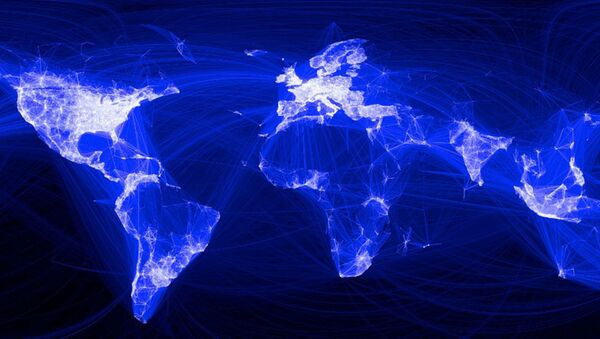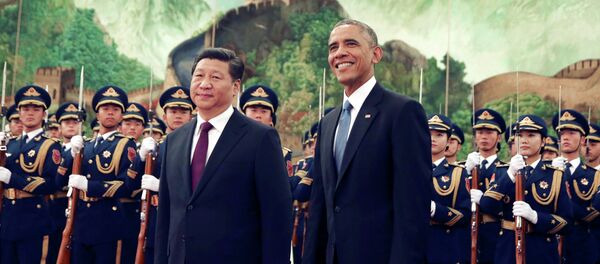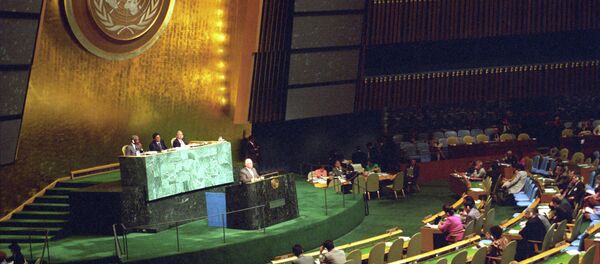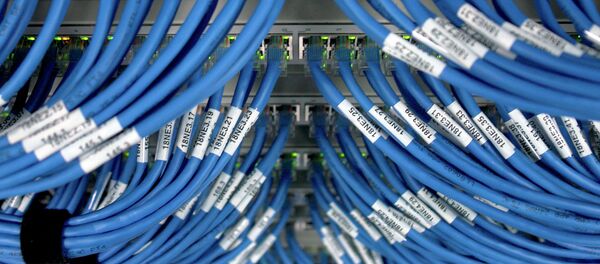The Internet was invented by Al Gore, and as such is property of the US government, right?
Not quite, but the web’s creation does date back to research commissioned by the US government back in the 1960s. And besides, the government doesn’t own the Internet. No one does.
But the US does oversee the Internet Corporation for Assigned Names and Numbers (ICANN). That nonprofit group is responsible for assigning Internet domain names and the corresponding numbers behind those addresses.
One year ago, the US government announced plans to relinquish technical oversight by the Department of Commerce in favor of a "global multistakeholder community," like the United Nations.
On Thursday, the head of ICANN, Fadi Chehade, predicted that the privatization process would go through smoothly by year’s end, as all the necessary factors are nearly in place.
"It is now up to the community to wrap them up, put them in a nice little box with a bow and ship them to Washington," Chehade said of those factors, according to AFP.
When the transition was first proposed, many felt that the competing interests of various nations would fracture the nature of the World Wide Web.
"When we started we heard things like the UN would take over or China will fragment the Internet," Chehade said. "Everyone was in threat and defense mode."
But nearly 150 countries have come together to support the plan.
"Now that China has come to the table, and Brazil has done the same, government after government is showing support."
This support was likely driven by a belief that something as widespread and crucial as the Internet should not remain under the jurisdiction of any one government. Chehade supports this idea.
"I feel the proposal will lead us to a global, independent, neutral, well-governed organization," he said.
Despite Chehade’s optimism, many Congressional lawmakers were already questioning ICANN’s management, and are worried that granting oversight to an international community will only make matters worse. A hearing in the House of Representatives on Wednesday underscored legislator’s concerns with ICANN’s lack of accountability.
Representative Bob Goodlatte said there were "concerns routinely expressed by a wide array of stakeholders about ICANN’s trustworthiness, accountability, execution and transparency of its current and existing duties and initiatives."
Goodlatte also accused the organization of not properly handling "registries that profit from the trafficking of counterfeit drugs and even controlled substances like heroin."
Still, many of these seem less like legitimate criticisms and more like a way to prevent the US from "giving away" the Internet.
"To me it’s a bit of a sideshow. The IANA transition is so much more important to everything going on with ICANN," Jonathon Nevett, executive vice president at Donuts Inc., told Bloomberg.
Of course, the debate may not even matter. As the Wall Street Journal reported earlier this week, the world could soon be running out of IP addresses, which would leave ICANN with nothing to administer.






